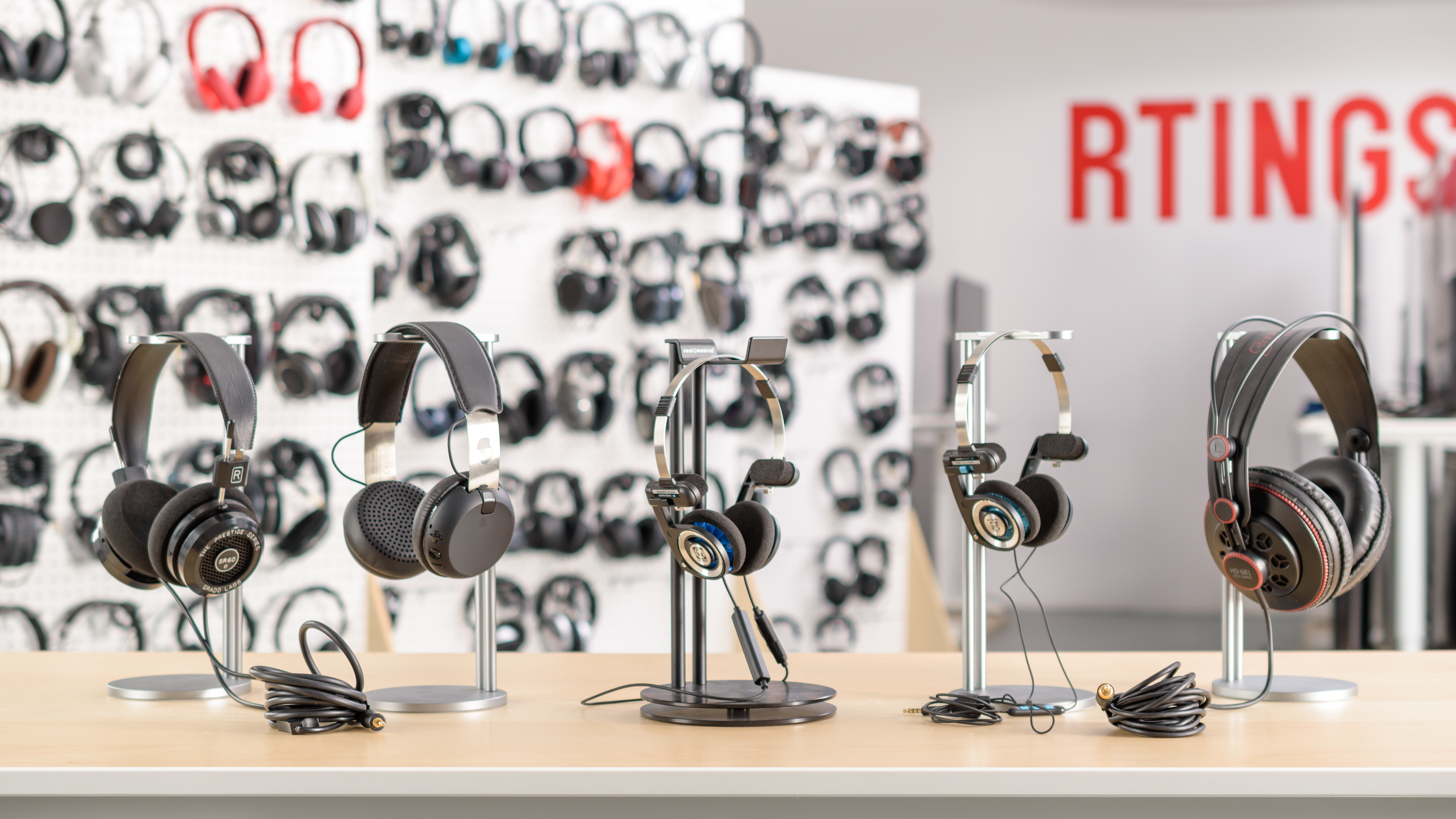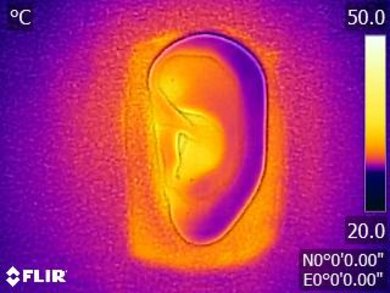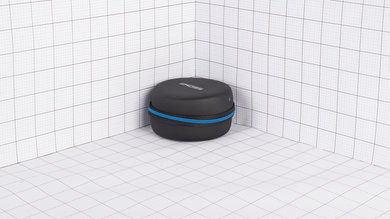Our Verdict
The Koss Porta Pro are average-at-best mixed usage headphones. They are best used for critical listening or sports thanks to their well-balanced sound and lightweight, open design. They look identical to the old model but have a much greater range since they are wireless. However, their wireless implementation feels a bit lazy and they're now Bluetooth-only headphones so you cannot reduce the latency when watching movies by using an audio cable.
- Lightweight and comfortable design.
- Above-average audio reproduction.
- No isolation from ambient noise, by design.
- Weak and flimsy build quality.
- Leaky at higher volumes, by design.
Average for neutral listening. The Porta Pro Wireless have a decent sound with an above-average bass and an open soundstage. They're also comfortable enough to wear for hours of listening. Unfortunately, their bass somewhat extends into the mid-range which makes them sound a bit cluttered and muddy and their treble range is a little recessed, so instruments do not sound as detailed. Overall though, they should sound good enough for most.
Below-average for commuting. They have an open design that does not block any ambient noise which is not suitable for the loud environments involved in commuting.
Average for sports. They're lightweight comfortable and wireless with a decent control scheme. They're also very breathable and compact. However, they are not the most stable headphones for more intense workout routines.
Mediocre-at-best for office use. They're comfortable to wear for hours and have a long battery life but unless you work in an isolated environment the leakage level of the open ear cups will be bothersome to those around you and they do not block any noise.
Below-average for gaming. They have a mediocre microphone, and way too much latency to be suitable for gaming. They also do not have a companion app, which means they won't be as customizable as most gaming headsets and they're Bluetooth-only headphones that will not work with your consoles.
Changelog
- Updated Nov 21, 2019: Converted to Test Bench 1.3.1.
- Updated Nov 21, 2019: Converted to Test Bench 1.3.
- Updated May 10, 2018: Review published.
- Updated May 08, 2018: Our testers have started testing this product.
Check Price
Popular Headphones Comparisons

The Porta Pro wireless are lightweight and compact headphones with a good enough sound for critical listening. They are pretty much identical to the old model except that they are wireless. They're compact enough to fit into some pockets and the breathable design makes them a decent option for sports. Unfortunately, their build quality feels very flimsy and they do not block any noise so they won't be as versatile as some of the other on-ears compared below.
The Koss Porta Pro Wireless are a wireless variant of the regular Koss Porta Pro with a similar performance overall. The wireless variant of the Porta Pro are a bit more practical for everyday use. They also have a bit more range so you can leave your device on a table and still listen to your audio. The wired Porta Pro, on the other hand, have zero latency when watching videos. They also do not have a battery since they are completely passive, so you will never be without music.
The JBL T450BT are slightly better headphones and offer a better value for your money when compared to the Koss Porta Pro Wireless. The Porta Pro Wireless have a more comfortable, portable, and breathable design than the JBLs. They also have a well-balanced and open sound that does not sound as sharp as the T450BT. They also have a slightly longer battery life, although not by much. On the other hand, the JBL T450BT have better noise isolation and leak a little less thanks to their closed design. They also have an easier to use control scheme and a slightly sturdier build quality, although not by much since they are mostly plastic.
The Koss Porta Pro Wireless are better headphones than the Grado GW100 Wireless. They are more portable since they can fold into a more compact format, are very lightweight, are more comfortable, and leak less. However, the Grado can be used wired too, which is very convenient if the battery is dead. They support aptX-LL and are better-built headphones.
Test Results
The Koss PortaPro Wireless are identical to the regular Koss Porta Pro but with a cable linking the two ear cups that has a wireless Bluetooth adapter and a battery. They have the same unique and retro appeal that has set the Porta Pros apart from the competition for years, but the look won't be for everyone. They have small plastic on-ear ear cups that are attached to a thin metal frame. That combined with the fragile-looking audio cables and overall flimsy build quality, makes them feel like cheap airline headphones.
The Koss Porta Pro Wireless, like the originals, are extremely lightweight on-ear headphones. They're slightly heavier since they have the additional cable with the wireless and battery components attached, but it's negligible and typically rest on the back of your neck. The headband is flexible, they're not too tight on the head, and they have an adjustable tension slider that alters the angle of the ear cups. It doesn't change the fit that much but it's a nice addition to the design. Unfortunately, they're poorly padded and the headband might get tangled in your hair, especially if you adjust the headset while on your head. However, they're so lightweight that you will barely notice them once you have them on.
The wireless version of the Koss Porta Pro comes with an inline control module that provides call/music, track skipping, and volume controls. The buttons provide better feedback than the Porta Pro KTC, but they do feel a bit mushy and are not as easy to find by touch alone, unlike some of the other inline remotes we've tested.
The Koss Porta Pro Wireless, like the original model, are one of the most breathable on-ear headphones we've tested. They have an open back design and since they just rest on your ears and do not seal them like over-ears do, they barely cause any temperature difference even while running or working out. They may not be stable enough for sports but they are definitely breathable enough for even intense workout regiments.
These headphones are very portable and fold into a small, compact format that's easy to carry around on your person. They're on the smaller side for an on-ear model and can even fit into some pockets. However, they are larger than in-ears so you won't be able to cram them into your jeans but they will easily fit into most bags.
They come with a good hard case that will protect the headphones from scratches, impacts, and drops. It's a lot better than the pouch provided in the original Koss Porta Pro's box although it does add a bit of bulk which means the headphones will not fit as easily in your pockets once you put them in the case.
The build quality of these headphones is sub-par and feels cheap. The headband is a thin metal frame with no padding and an awkward sliding mechanism to adjust its size. The ear cups are not particularly dense, although their lightweight build makes hard falls less damaging. Unfortunately, they don't feel durable. They have a lot of moving parts that will wear over time. The audio cables are thin, frail and could snap relatively easily from regular use. On the upside, they come with a reliable lifetime warranty as long as you're able to send the headphones back to Koss.
These headphones have a decently stable design. They're better suited for running than the previous Koss Porta Pro since they're wireless and less likely to be yanked off your head because the audio cable got caught on something. However, they do sit pretty loosely on the ear which makes them comfortable but also means they will occasionally slide off your ears during more intense exercises.
The Koss Porta Pro Wireless has a great frequency response consistency. In the bass range, the maximum amount of deviation across our five human subjects is about 3dB at 20Hz, but the rest of the bass range is quite consistent. The treble delivery is also very consistent across multiple re-seats, with the maximum deviation below 10KHz being less than 3dB.
The bass of the Koss Porta Pro Wireless is good. The LFE (low-frequency extension) is at 22Hz, which is very good. Also, low-bass, responsible for the thump and rumble common to bass-heavy genres, is within 0.4dB of our neutral target. However, mid-bass and high-bass are overemphasized by more than 4dB, which brings excess boominess and muddiness to the bass.
The Koss Porta Pro Wireless have a very good mid-range. The 4dB bump in low-mid, is the continuation of the high-bass overemphasis, which thickens vocals and clutters the overall mix. But mid-mid and high-mid, occupied by the upper harmonics of vocals and lead instruments, are more flat and better-balanced.
The treble is sub-par. The overall response is rather uneven and consistently under our neutral target by more than 3dB. This means that vocals and lead instruments will lack a bit of detail and brightness, especially when considering the overemphasized upper-bass/lower-mids of these headphones.
The imaging is great. Weighted group delay is at 0.22, which is within very good limits. The GD graph also shows that the entire group delay response is below the audibility threshold. This ensure a tight bass and a transparent treble reproduction. Additionally, the L/R drivers of our test unit were very well-matched. This is important for the accurate localization and placement of objects (voices, instruments, video game effects) in the stereo image.
The soundstage is mediocre. The PRTF graph shows very little pinna interaction/activation which is due to the on-ear design of these headphones. This results in a small soundstage that is perceived to be located inside the listener's head. However, because of the open-back design of their enclosure, they tend to sound more open and spacious than closed-back headphones.
The Koss Porta Pro Wireless have a poor isolation, which is due to their open-back design. In the bass range, where the rumble of airplane and bus engines sit, they achieve no isolation. They also don't isolate in the mid-range, which is important for blocking out speech. In the treble range, occupied by sharp sounds like S and Ts, they achieved about 7dB of isolation, which is sub-par.
The leakage performance is sub-par. The significant portion of the leakage is between 1KHz and 12KHz, which is broad but mostly concentrated in the treble range. The overall level of the leakage is relatively loud too. With the music at 100dB SPL, the leakage at 1 foot away will average at 46dB SPL, and peaks at 65dB SPL, which is quite a bit above the noise floor of an average office.
The Koss 'Porta Pro Wireless' have a below-average microphone. In quiet environments, speech recorded or transmitted with this mic will sound relatively thin, and noticeably muffled and lacking in detail. It will still be relatively easy to understand. In noisy situations, it'll struggle to fully separate speech from background noise, even in moderately loud places, like a busy street.
The microphone has an average recording quality. The big dip around 120Hz results in a recorded/transmitted speech that sounds relatively thin. The HFE (high-frequency extension) of 3.3KHz means that speech will sound muffled and lacking in detail. But it'll still be decently understandable, since speech intelligibility is mostly dependent on the 500Hz-4KHz range.
The in-line microphone of the Koss Porta Pro Wireless is mediocre at noise handling. In our SpNR test, they achieved a speech-to-noise ratio of 13dB. This suggests they are best suited for quiet environments and will struggle to fully separate speech from ambient noise in moderate and loud places.
These headphones have an above-average battery life but lack good power saving features. They will easily last you the whole day with up to 15 hours of continuous playback at average volumes. However, they will stay paired to your phone or Bluetooth device even when inactive. If you forget to switch them off the battery will continue to drain although not as fast. Overall, it's a decent battery life but it could be better. On the upside, they do not take too long to charge at 1.3 hours.
These headphones do not have any compatible app for added customization options.
They only connect to other devices via Bluetooth. They do not support NFC or simultaneous multi-device pairing but do remember the last sync device.
These on-ears have a bit too much latency for watching movies and gaming. They perform a bit better than typical Bluetooth headphones, especially when using aptX but unfortunately, they also have no wired mode so they won't be the ideal home theater headphones.
These headphones are bluetooth-only and do not have an audio cable or a wired connection. If you want a decent sounding on-ear with a wired connection, we would suggest the Skullcandy Grind.
These headphones do not have a dock. If you want a headphone that's versatile and has a dock, try the SteelSeries Arctis 7. However, they won't be as compact or portable as the Porta Pros.















